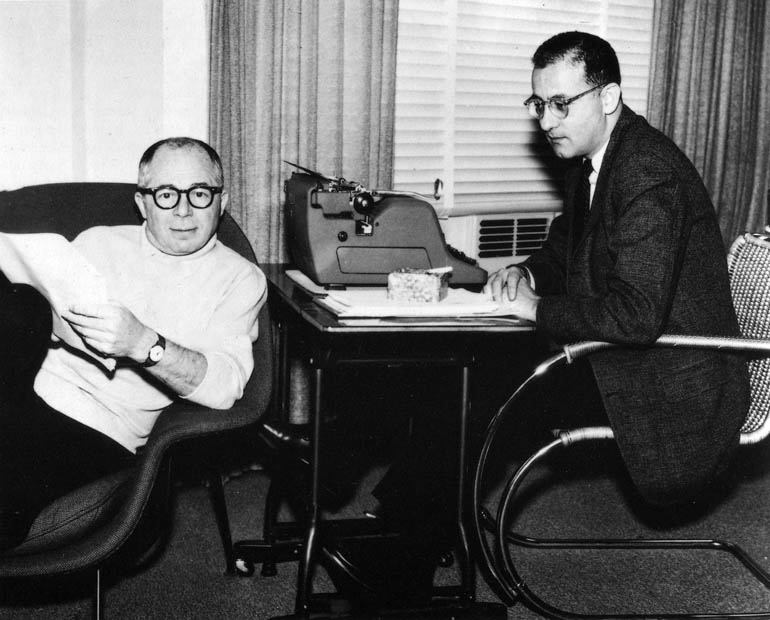Billy Wilder is one of the greatest screenwriters of all time and on top of that he was one of the greatest director’s too. He frequently wrote with I.A.L. Diamond they collaborated on screenplays such films as “Some Like it Hot”, “The Apartment” and “Kiss Me, Stupid.” If you do not know these titles you need to stop reading and get on Netflix.
When I was in college while others were drinking or living in a coffee house I was at my school library reading old screenplays and interviews from filmmakers. One of my favorite books was between Billy Wilder and Cameron Crowe, anything Mr. Wilder said I hung on to and has stuck with me. I am starting the scripts for iSpotSanta’s 6th year and like I always do before I start a script I read these ten tips from Mr. Wilder. Read them, learn them, live by them.
1: The audience is fickle.
2: Grab ‘em by the throat and never let ‘em go.
3: Develop a clean line of action for your leading character.
4: Know where you’re going.
5: The more subtle and elegant you are in hiding your plot points, the better you are as a writer.
6: If you have a problem with the third act, the real problem is in the first act.
7: A tip from Lubitsch: Let the audience add up two plus two. They’ll love you forever.
8: In doing voice-overs, be careful not to describe what the audience already sees. Add to what they’re seeing.
9: The event that occurs at the second act curtain triggers the end of the movie.
10: The third act must build, build, build in tempo and action until the last event, and then — that’s it. Don’t hang around.
This is from the book, “Conversations with Wilder” by Cameron Crowe.


3 Comments on “Billy Wilder’s 10 Tips on Screenwriting”
Mr Wilder was a genius, thanks for the tips.
On of the most influential filmmakers of the 20th century.
He’s the greatest filmmaker that has ever lived.